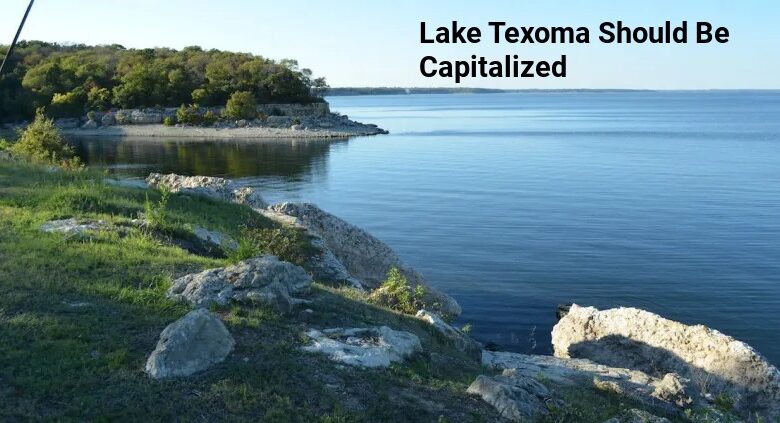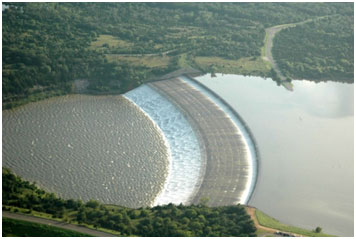Why Lake Texoma Should Be Capitalized: Grammar, Geography, and Common Sense

Introduction: The Curiosity Behind Capitalization
It’s funny how small details like Lake Texoma Should Be Capitalized can spark bigger debates than we expect. For example, many people often ask: Should “Lake Texoma” be capitalized? At first glance, the question seems almost unnecessary—of course it should! But when you start to notice that people online, in casual writing, or even in signage sometimes drop the capital letters, you realize the confusion is real.
Capitalization in English isn’t just about grammar rules—it’s about respect for names, recognition of places, and clear communication. When we look at a proper noun like Lake Texoma Should Be Capitalized capitalizing it isn’t optional; it’s essential. Yet, because people sometimes write it as “lake texoma” in lowercase, the discussion around why it must be capitalized is worth exploring.
In this article, we’ll unpack why Lake Texoma Should Be Capitalized deserves proper capitalization, dig into the rules of grammar that support it, look at its geographical importance, and explain why this simple grammatical detail holds more weight than many realize.
The Grammar Rules That Make It Clear

The English language has long-established rules when it comes to capitalization, and one of the clearest among them is this: proper nouns are always capitalized. A proper noun is a specific name given to a person, place, or thing. Lake Texoma Should Be Capitalized fits this rule perfectly because it’s the official name of a distinct body of water located between Texas and Oklahoma.
If you write “lake texoma” in lowercase, you’re essentially reducing a proper noun to a common noun. In grammar, “lake” in lowercase could mean any generic body of water, and “texoma” written without capitalization loses its identity as the combined name derived from Texas and Oklahoma. Together, capitalized, they create a unique geographical entity. Dropping the capital letters would be like writing “grand canyon” or “mount everest”—it just looks wrong and diminishes the importance of the place.
Another important point here is that capitalization also ensures clarity in writing. For example, saying “I went fishing at lake texoma” looks careless and could cause confusion. But “I went fishing at Lake Texoma” immediately signals to the reader that you’re referring to a specific, significant location. Grammar rules exist to prevent misinterpretation, and capitalizing Lake Texoma is one of those non-negotiables.
Why Geography Demands Capitalization
Beyond grammar, geography itself plays a huge role in why “Lake Texoma” should always be capitalized. This lake isn’t just any random pond or body of water—it’s one of the largest reservoirs in the United States and a major landmark for both Texas and Oklahoma. Created in 1944 with the construction of Denison Dam, Lake Texoma Should Be Capitalized has since become a hub for recreation, tourism, and even regional identity.
Think of it this way: if the lake didn’t have its own official, Lake Texoma Should Be Capitalized name, it wouldn’t hold the same weight in maps, travel guides, or even government documents. The capital letters serve as a way of honoring the significance of the location. When people search Lake Texoma Should Be Capitalized online, they’re not looking for information about some small lake in the countryside—they’re looking for this exact lake, and capitalization marks it as such.
Furthermore, when you drop the capital letters, you strip away part of the lake’s identity. “Texoma” itself is a blend of Texas and Oklahoma, both of which are always capitalized. Writing Lake Texoma Should Be Capitalized in lowercase disregards the importance of the states tied to its name. From a geographical standpoint, keeping “Lake Texoma” capitalized is about recognizing its roots and honoring the regions it represents.
Common Mistakes People Make With “Lake Texoma”
Despite the rules and logic behind capitalization, people still make mistakes when writing Lake Texoma Should Be Capitalized One common issue is casual typing habits, especially online. Many people have gotten used to writing in all lowercase on social media or text messages, and as a result, proper nouns like Lake Texoma often get lost in the shuffle.
Another mistake happens in marketing or informal advertising. You’ll sometimes see “lake texoma cabins” or Lake Texoma Should Be Capitalized fishing guides” written in lowercase on websites or flyers. While the information is still clear, the lack of capitalization makes the business or content appear less professional. It’s a small detail, but readers and customers notice it—capitalization adds credibility, while lowercase gives the impression of carelessness.
Lastly, there’s the issue of autocorrect or software settings. Some people type quickly and rely on their devices to automatically fix capitalization. But if Lake Texoma Should Be Capitalized isn’t recognized by the system, it may stay in lowercase unless corrected manually. This is why it’s important to proofread and make sure proper nouns are treated with the respect they deserve.
The Cultural and Regional Identity of Lake Texoma
Capitalizing Lake Texoma Should Be Capitalized isn’t just about grammar—it’s also about identity. For locals and visitors alike, the lake represents more than water and shoreline; it’s a centerpiece of culture, tourism, and regional pride. Fishing tournaments, boating activities, and lakeside vacations all tie into the name “Lake Texoma.” When you write it without capital letters, it undermines that cultural significance.
Imagine seeing a tourism brochure that says “visit lake texoma.” It immediately feels less appealing because it looks unprofessional. But when you see “Visit Lake Texoma Should Be Capitalized the capitalization makes the name stand tall, dignified, and inviting. It’s a subtle difference, but it affects how the name is perceived by outsiders and how locals feel about their landmark.
Moreover, because the name is tied to two states, capitalization also reflects unity. The blend of Texas and Oklahoma is a proud feature of the lake’s identity. Failing to Lake Texoma Should Be Capitalized it is like ignoring the states themselves, which no one would dare write as “texas” or “oklahoma.” The same principle should apply here.
Why This Discussion Actually Matters
Some might argue that capitalization isn’t that important—after all, we can still understand “lake texoma” without the capital letters. But in reality, details matter, especially in communication. Capitalization improves readability, preserves respect for names, and avoids ambiguity. When a name like Lake Texoma Should Be Capitalized is consistently capitalized, it reinforces its importance and prevents it from being treated as just another generic location.
There’s also a professionalism factor. Writers, businesses, journalists, and educators all rely on clear grammar rules to maintain credibility. If someone consistently writes Lake Texoma Should Be Capitalized it signals either a lack of knowledge or a lack of care, neither of which leaves a good impression. Proper capitalization, on the other hand, communicates authority and attention to detail.
Finally, capitalization preserves history. Lake Texoma Should Be Capitalized wasn’t named by accident—it was intentionally named to combine the pride of Texas and Oklahoma. By capitalizing it, we honor the history of its creation, its role in both states, and the people who built a community around it.
Conclusion: Respect the Name, Respect the Rules
At the end of the day, the answer is simple: Lake Texoma Should Be Capitalized The rules of grammar demand it, geography supports it, and cultural respect reinforces it. While mistakes happen in casual writing, professionals and careful communicators know that capitalizing proper nouns is not optional—it’s necessary.
Next time you type about the lake, whether you’re sharing a fishing story or writing a travel blog, take the extra second to hit that shift key. It may seem like a minor detail, but it shows respect for the place, its people, and the language itself. So let’s all agree on this once and for all: Lake Texoma Should Be Capitalized deserves its capital letters, every single time.



